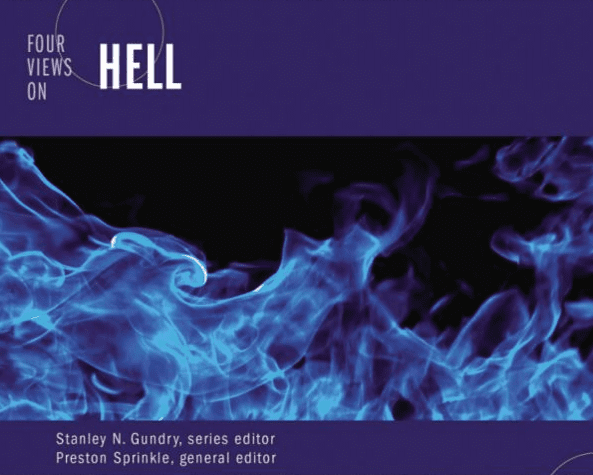By Jeff Cook
Erasing Hell – Might Makes Right
Hell is making us all think really hard about God. In order to push our thinking I am working through a few big ideas in Dr. Preston Sprinkle and Francis Chan’s recent book, Erasing Hell: What God Said About Eternity and What We Have Made Up. I have deep admiration and respect for these two men, and their book is worth our careful reading and engagement.
To get things going let me float our question right up front: Does God’s immense power and knowledge give him “the right” to do whatever he wants?
 A central claim of Chan and Sprinkle—which creates their foundation (and breathing room) for embracing the traditional view of hell as eternal conscious torment—is the idea that whatever God chooses to do is, by definition, “right”. At the outset, the writers in defining the purpose of their book say,
A central claim of Chan and Sprinkle—which creates their foundation (and breathing room) for embracing the traditional view of hell as eternal conscious torment—is the idea that whatever God chooses to do is, by definition, “right”. At the outset, the writers in defining the purpose of their book say,
“This book is actually much more than a book on hell. It’s a book about embracing a God who isn’t always easy to understand, and whose ways are far beyond us; a God whose thoughts are much higher than our thoughts; a God who, as the sovereign Creator and Sustainer of all things, has the right to do, as the psalmist says, “whatever He pleases” (Ps. 115:3). God has the right to do WHATEVER he pleases. If I’ve learned one thing from studying hell, it’s this last line. And whether or not you end up agreeing with everything I say about hell, you must agree with Psalm 115:3 (p.17, emphasis theirs).
Though the word “right” (which adds a moral element) does not appear in Psalm 115, this is a foundational idea at work in Erasing Hell. The writers fall back on this argument and use the language of God having the “right” to do whatever he wishes throughout the text, and from this argument they establish that, because God is supremely powerful and all-knowing, God has the moral authority to create a state of eternal conscious torment if he so desires.
The authors’ most thorough construction of this argument comes in chapter 6—the most important and philosophically-charged chapter in the book—in which they examine a portion of Romans 9. Referring to a metaphor used by Paul, they say, “We need to surrender our perceived right to determine what is just and humbly recognize that God alone gets to decide how he is going to deal with people. Because He’s the Potter and we’re the clay” (131).
Now, is this a worthy use of Romans 9? Morally, can a creator do whatever he wishes with his creation? I’m not sure this is a principle Paul would affirm.
For example, let’s imagine that I have the power to create 3 year olds out of thin air. Because I am the “creator” of such three year olds, do I then have the moral “right” to do to those 3 year olds whatever I wish? Push them in front of busses for fun? Poke out their eyes to defend my glory? Molest them to my heart’s content? How about in the case of God? Let’s imagine that God creates a little kid (that looks an awful lot like a kid you care about), and he chooses to place them in a microwave on low for entertainment until they explode. Because God is “the Potter” does he have the moral right to do this with his “clay”?
Well, if by “right” we mean “the ability to do so,” then I suppose he does. God is quite powerful. But if by “right” we mean the moral authority to do whatever one wishes and remain good, act justly, be kind and compassion—this is an obvious problem. How can one act in violent, abusive, seemingly negligent and self-serving ways and remain “good”?
What Chan and Sprinkle are in essence defending is a “might makes right” principle. They consistently assert that because God has immense power and knowledge, everything he does is morally praise-worthy. As such they ask questions like, “What if God, as the sovereign Creator of the universe, decided to create “vessels of wrath prepared for destruction”? … What would you do if He chose to do this? Refuse to believe in him? Refuse to be a vessel of mercy? Does that make any sense? Would you refuse to follow him? Really? Is that wise?” (130)
The answer is of course, “I reject a “might makes right” theory of moral goodness, I think God agrees, and as such I think your interpretation and use of Romans 9 must be flawed. But supposing the kind of deity you are describing does exist, sure I might follow that deity out of fear, out of self-preservation, or in a state of confusion—but sheer power and knowledge do not make a god worthy of worship or affection.”
Of course, after rejecting the “might makes right” principle, we undercut the argument in Erasing Hell, and we may take the next step and affirm that—because a supremely good and loving God exists and would not actualize repugnant states of affair like the eternal conscious torment of a few million souls—we have another good reason to reject the traditional interpretation of passages on hell.
Jeff teaches philosophy at the University of Northern Colorado, pastors Atlas Church (Greeley), and is the author of Seven: the Deadly Sins and the Beatitudes (Zondervan, 2008) and Everything New (2012).











